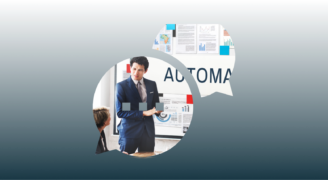ERPs are the core of vital business processes for many large companies. Major ERP upgrades are a time-consuming and challenging process. The avoidance of persistent mistakes allows companies to maintain maximum performance while implementing updates without interfering with user comfort in the current process.
Many ERP update projects fail to meet up to the business goals. Either the outcomes may not provide the desired business advantages, or, worse, they can threaten the organization's financial viability. However, a powerful cloud ERP like NetSuite is the first option for a powerful ERP solution for any industry. NetSuite has a high level of adaptability and flexibility to achieve and update business functions.
Mistakes to Avoid While an ERP Upgrade
Here are some mistakes to look onto while planning and implementing an upgrade.
1. Improper Planning
Configure the ERP implementation project for success through careful planning and demand gathering. ERP implementation reduces errors by carefully reviewing the internal processes and prioritizing planning and training.
Implementation requires more time and includes numerous steps and procedures. The lack of one aspect of implementation leads to significant setbacks or even failure. A proper ERP plan detailing the procedure for the project ensures the project's progress.
2. Utilization of Key Features
There are countless ways to complete tasks quicker, achieve challenging business goals, and automate common business processes. Unfortunately, most employees are not aware of how to use all of the ERP system's key features. Initially, learn ERP system's features and make a list of how each feature is used. Then, determine the most useful features and enable workers to make full use of them.
3. Failing to Ensure Robust Test Management
Many companies fail to conduct thorough testing in their production environments to find custom objects that are not working properly until deployed. Avoid this mistake by forming a research team or collaborating with an implementation partner. The best way is to provide a complete test environment as the same as your production environment.
4. Lack of Maintenance Strategy
Maintaining the solution after deployment is a part of the implementation strategy. Keep up with the ERP software after it's been implemented to avoid the failure of the system. Maintain your ERP system on a regular basis to get the most out of it and maximize your investment.
5. Lack of Resources and Time in Training
Every employee should have the opportunity to train and test the new system before it goes live. One of the most common ERP upgrade problems is a lack of sufficient training. A good idea is to establish a feedback and support center for employees. It keeps channels of communication open in the production and implementation process, ensuring that everybody can use it.
6. Underestimating Accurate Data
It is critical to ensure the new ERP system is configured with accurate and clean data, reducing the risk of errors and ensuring that appropriate protocols and parameters are in place. To reduce the probability of errors, proper procedural parameters must be defined right from the start.
Why Choose NetSuite?
One of the best features of Oracle NetSuite cloud ERP is that it is auto upgraded twice in a year and it is completely free. Each upgrade enables you to have extended features, security, and scalability without paying anything.
Factors that affect business firms' decisions to move to NetSuite.
• Easy learning: NetSuite is a highly scalable solution with minimal operational complexities. It is flexible to our requirements and is user-friendly.
• Business Process Efficiency: NetSuite improves business performance and process reliability. NetSuite accelerates growth and development by optimizing and automating business processes. It is run on a single cloud ERP platform that allows for universal access and the highest level of data protection.
• Accelerated Growth: Businesses can speed up their processes and expand their reach with NetSuite's support. Improved process reliability and functionality helps to grow faster.
• Data Security: NetSuite ERP ensures the highest level of data integrity and confidentiality. The data is highly secure and can be stored in the cloud. It eliminates the loss of data by external factors.
• Easy to adopt: NetSuite is extremely adaptable and any company has benefited from its features. NetSuite works with any third-party software and its customization features can easily capture specific business requirements.
Jobin & Jismi has a good experience in providing NetSuite cloud ERP solutions services. Please get in touch with us for more information on any NetSuite Services.



